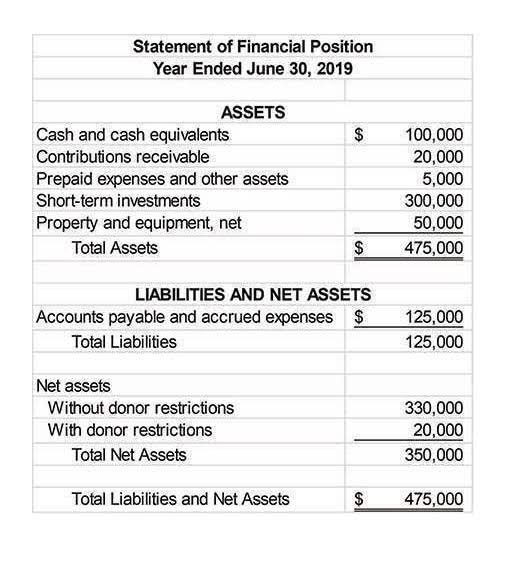How to Do Accounting for Your Construction Business 8 Steps
- Posted by Admin Surya Wijaya Triindo
- On July 9, 2021
- 0

In contrast, traditional accounting typically treats business operations as a whole rather than breaking them down into separate projects. This method allows contractors to accurately bill their clients for the work they have completed rather than charging them a lump sum fee. By understanding and effectively managing retainage alongside your overall cash flow, you can mitigate its impact and maintain a healthier financial position throughout your projects. Remember, while retainage is a standard practice in construction, how you handle it can make a significant difference in your overall financial health.
See profit at a glance

It combines all job costing data in one place, offering an accurate representation of each job’s current status and retained earnings balance sheet your business’s overall financial health. Especially when dealing with contractors, accurate payroll management is crucial for compliance and cost control. It involves tracking hours worked, calculating wages, managing benefits, and ensuring proper tax withholding and reporting. A construction bookkeeper plays a vital role in managing financial data for construction projects. Their responsibilities differ significantly from standard bookkeeping, as they need to account for project-specific variables like labor, materials, and job costing.
Construction Accounting with QuickBooks: What You Need to Know
Using software and tools can help construction companies streamline their bookkeeping process and improve efficiency. There are many software options available that are specifically designed for construction companies, such as QuickBooks for Contractors, Foundation Software, and Sage 100 Contractor. Segregation of duties means that different employees are responsible for different aspects of the bookkeeping process.
- It determines the total cost of each job based on the specifications provided for the project.
- Delayed payments from clients can strain finances, affecting payroll and supplier payments.
- These regulations often dictate wage rates, overtime pay, benefits, and working conditions for unionized workers.
- By subscribing you agree to with our Privacy Policy and provide consent to receive updates from our company.
Setting up a Construction Bookkeeping System
The cash flow statement illustrates cash inflows and outflows, essential for managing liquidity. Understanding these documents enables effective financial planning and project management. In this in-depth guide, we will explore the key aspects of bookkeeping for construction companies.

Construction accounting is an important part of any construction business because it helps ensure that the company has solid financial reporting. By understanding these practices, owners can better monitor the financial health of their projects, identify cost overruns, make strategic decisions, and control costs. A well-structured cost coding system is a key construction accounting process and crucial for effective job costing and financial management. Consider the cost of insurance, travel, workers’ compensation, materials, subcontractors, equipment, and more. You will need to factor this into your construction accounting for each construction project and for the business as a whole. To effectively manage these variable expenses, you can use FreshBooks Project Accounting Software which lets you track project financials and create reports quickly and easily.
- Moreover, specialized software often includes features that cater to the nuances of the industry—such as tracking change orders or managing subcontractor payments—further enhancing operational efficiency.
- Construction bookkeeping is unique and complex, requiring specific approaches to accurately track costs, handle fluctuating budgets, and manage long project timelines.
- Additionally, categorizing expenses and regularly reviewing them helps identify cost-saving opportunities.
- Tracking money coming in and going out provides insights into the financial health of your contracting business.
- This guide covers key aspects of construction bookkeeping, including the role of a construction bookkeeper, recording expenses, and industry-specific accounting methods.
- You will need to factor this into your construction accounting for each construction project and for the business as a whole.
Completed Contract Method

In most sectors, commissioned contractors get paid when a product or service is completed. Many construction companies use a “completion percentage” approach, meaning they calculate estimated taxes based on quarterly income and expense reports. Implement systems to ensure invoices are sent promptly and accurately reflect the work https://www.bookstime.com/ completed.
These programs can also help with other aspects of payroll management, such as generating pay stubs and handling direct deposits. Moreover, specialized software often includes features that cater to the nuances of the industry—such as tracking change orders or managing subcontractor payments—further enhancing operational efficiency. Contract retainage is a common practice where customers pay contractors less than the project’s full cost. It ensures that the contractor meets all requirements and that the customer is satisfied with the performance before delivering the full payment.
Unlike traditional accounting methods, accounting for construction focuses on project-based financial management, often dealing with long-term contracts and variable costs. Managing project-specific accounting involves tracking multiple invoices, payments, and expenses for each project. Accurate record-keeping ensures that each project’s bookkeeping for general contractors financials are distinct, preventing overlaps and errors. To mitigate these challenges, I recommend using job-costing software designed for construction projects.



0 comments on How to Do Accounting for Your Construction Business 8 Steps